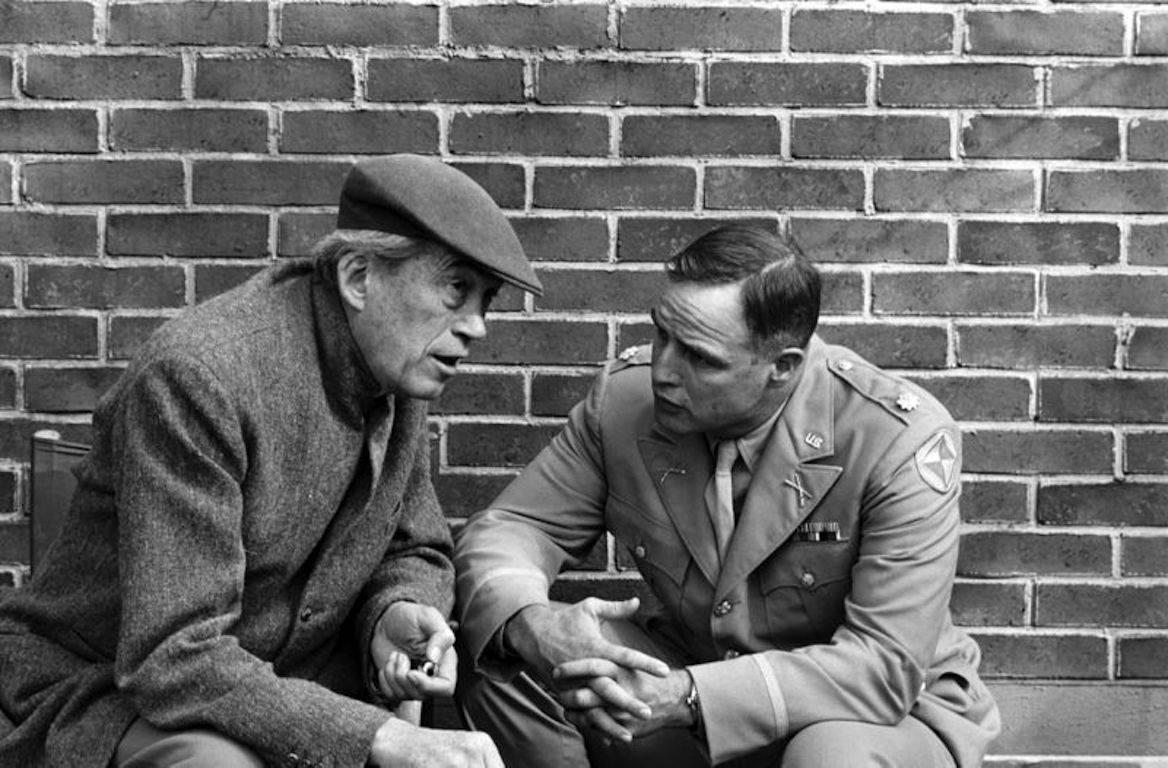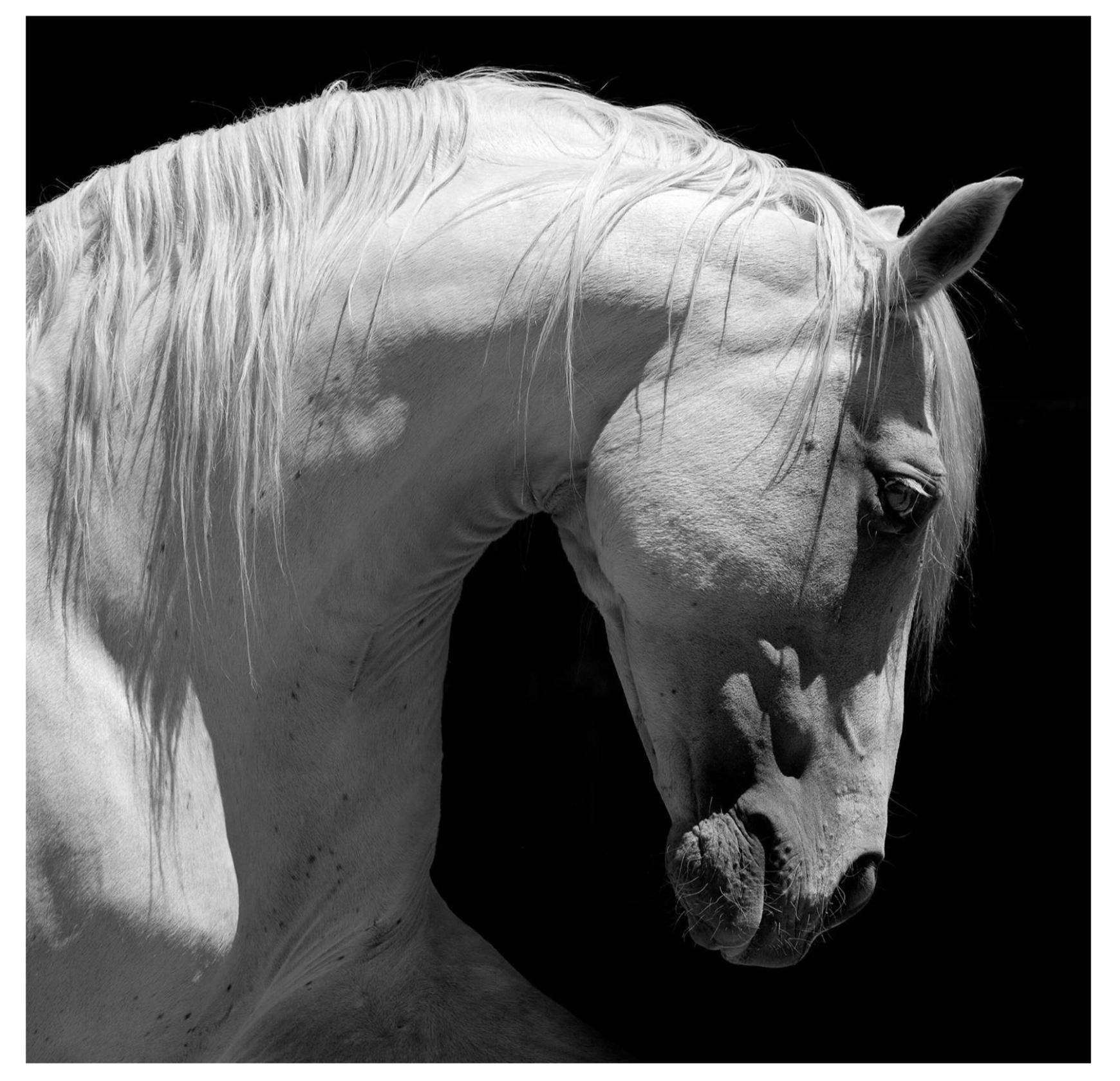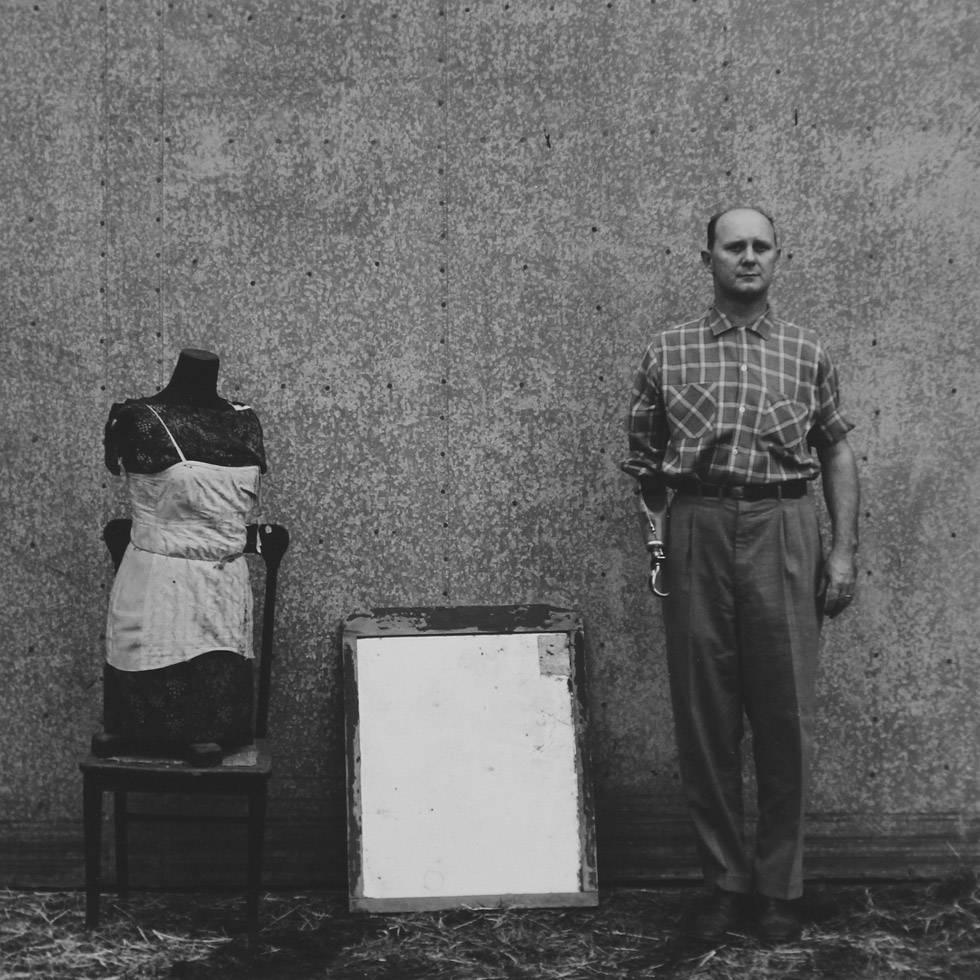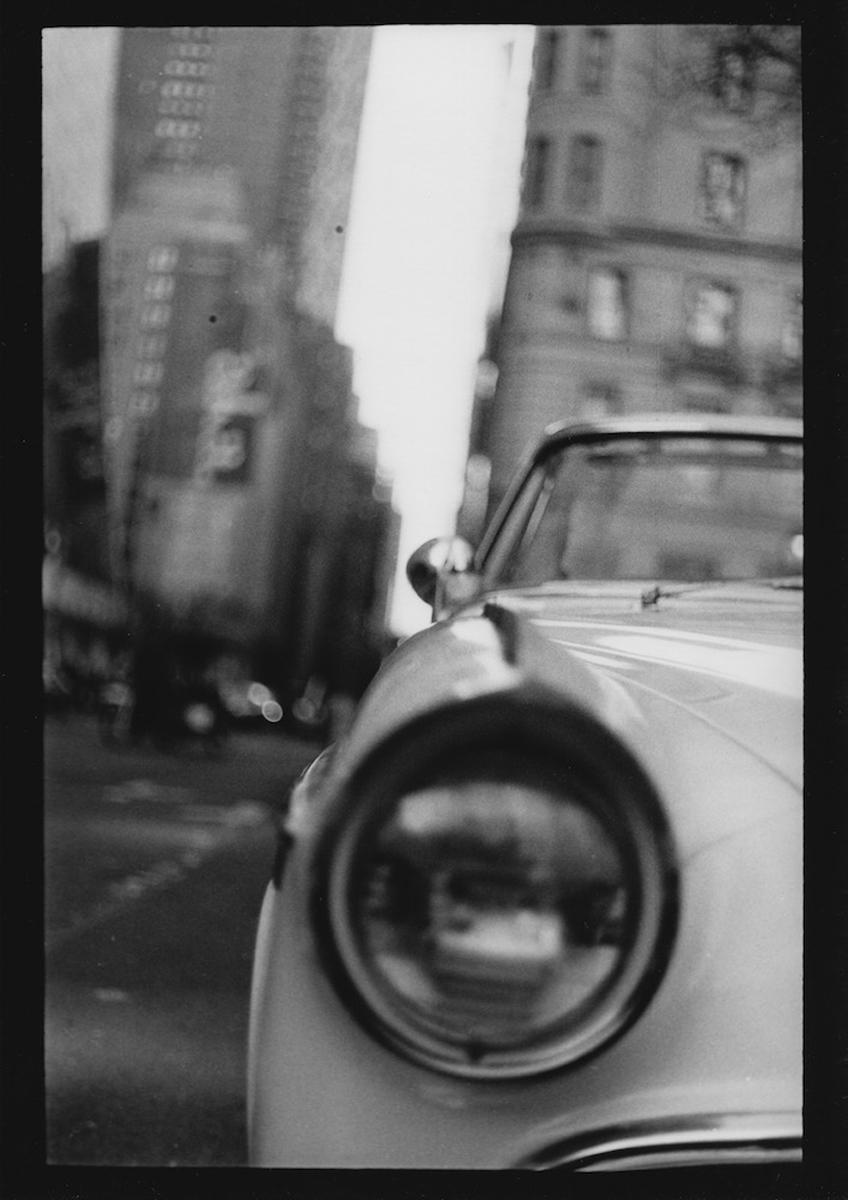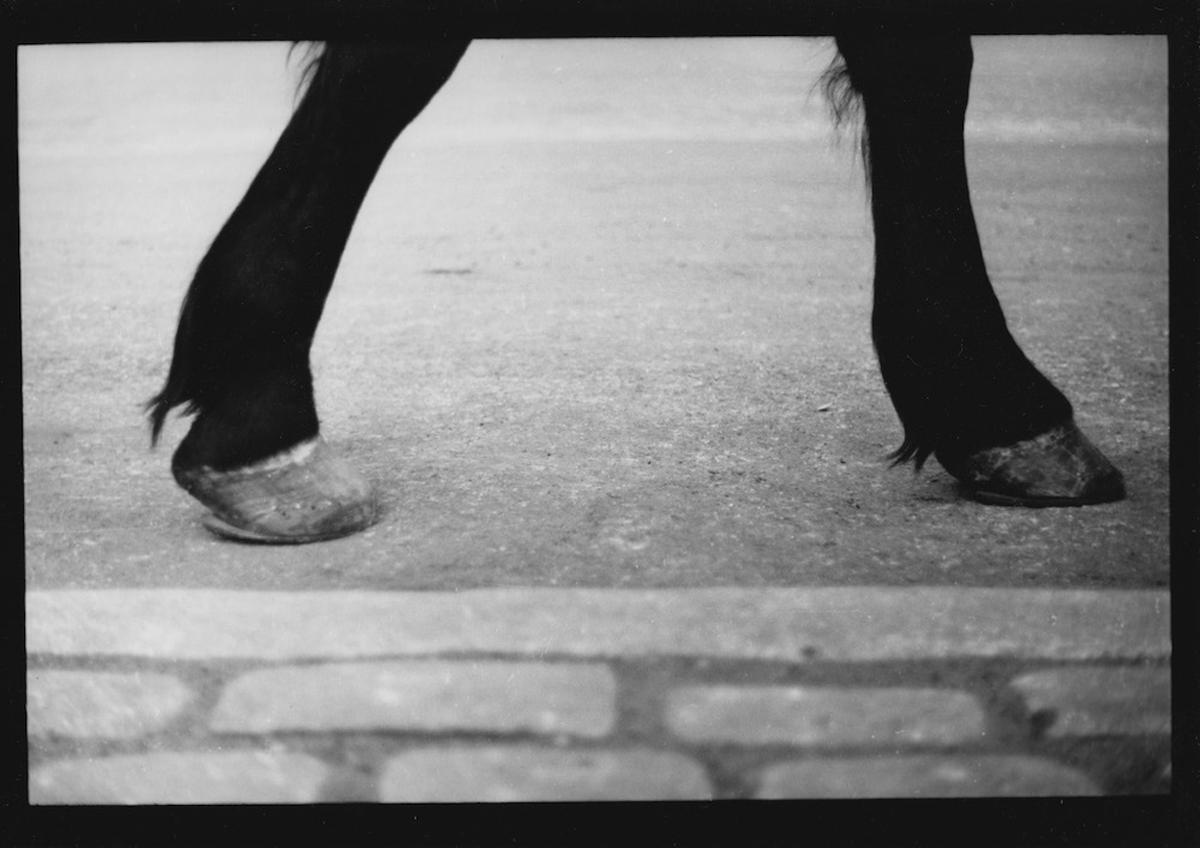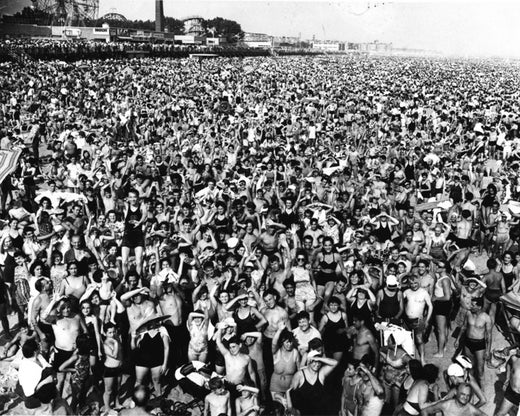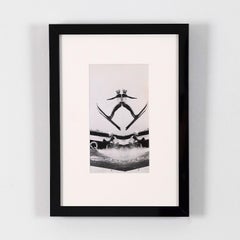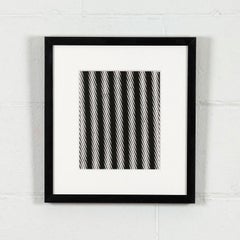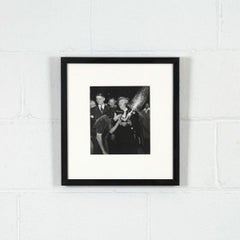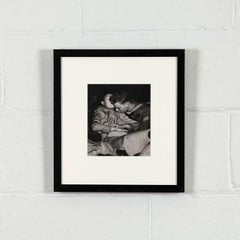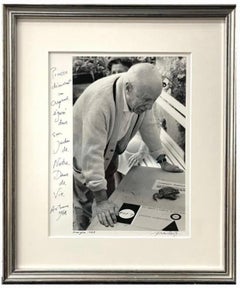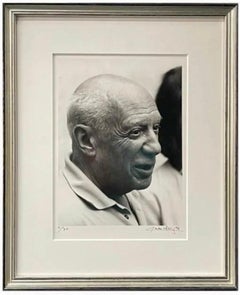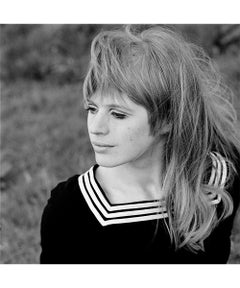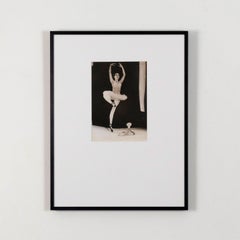
Ballerina
View Similar Items
Want more images or videos?
Request additional images or videos from the seller
1 of 10
WeegeeBallerinacirca 1950s
circa 1950s
$3,500List Price
About the Item
- Creator:Weegee (1899-1968, American)
- Creation Year:circa 1950s
- Dimensions:Height: 9 in (22.86 cm)Width: 6.5 in (16.51 cm)
- Medium:
- Movement & Style:
- Period:
- Condition:Very good condition.
- Gallery Location:Toronto, CA
- Reference Number:Seller: 08-231stDibs: LU215212990362
Weegee
Arthur Fellig, who later assumed the pseudonym Weegee, was a photographer and photojournalist, best known for his gritty black-and-white imagery taken on the streets of New York City. Born in 1899 in what is now the Ukraine, he arrived in the United States with his family in 1909, and settled in Brooklyn. After working in a variety of photography-related jobs, he struck out on his own at the age of 35 as a self-taught freelance photographer, selling his work to publications like the Herald Tribune, the Daily News, the Post, and the Sun. Weegee worked mostly at night, usually around Manhattan Police Headquarters. He was the only freelancer in New York to obtain permission to install a police radio in his car. As a result, he was often the first to arrive at the scene of the many crimes he photographed, often before the police themselves had responded. Moreover, he traveled with a makeshift darkroom in the trunk of his car, so he could produce, and then sell, his images faster than his competitors. But crime was not his only subject. He also photographed socialites at high-society events, circus performers, street life, tenement housing conditions, and many other facets of New York life. For a number of years he traveled extensively in Europe, and worked for the London Daily Mirror. He later returned to New York City, where he died in 1968. Th Museum of Modern Art began collecting his work in 1943, and featured it in several exhibitions. His work was also shown at the New York Photo League, and the International Center of Photography hosted a retrospective of his work in 1998. He has been featured in exhibitions at European venues such as the Kunsthalle Vienna, Austria's Flatz Museum, and the Multimedia Art Museum in Moscow. Several monographs of his work have been published.
About the Seller
4.8
Vetted Professional Seller
Every seller passes strict standards for authenticity and reliability
Established in 2009
1stDibs seller since 2015
196 sales on 1stDibs
Typical response time: 4 hours
Authenticity Guarantee
In the unlikely event there’s an issue with an item’s authenticity, contact us within 1 year for a full refund. DetailsMoney-Back Guarantee
If your item is not as described, is damaged in transit, or does not arrive, contact us within 7 days for a full refund. Details24-Hour Cancellation
You have a 24-hour grace period in which to reconsider your purchase, with no questions asked.Vetted Professional Sellers
Our world-class sellers must adhere to strict standards for service and quality, maintaining the integrity of our listings.Price-Match Guarantee
If you find that a seller listed the same item for a lower price elsewhere, we’ll match it.Trusted Global Delivery
Our best-in-class carrier network provides specialized shipping options worldwide, including custom delivery.More From This Seller
View AllWaterski Jumper
By Weegee
Located in Toronto, Ontario
Arthur Felling, better known as Weegee (1899-1968) is America's premiere photojournalist and one of the last century's most influential photographers.
He would become famous, beyond...
Category
1950s American Modern Black and White Photography
Materials
Silver Gelatin
Weegee "Distortion: Stripes"
By Weegee
Located in Toronto, Ontario
Innovative, provocative, inimitable - these are just a few of the words to describe America's boldest photographer.
Arthur Fellig, better known as Weegee (1899-1968) was a ground-breaking, successful (and notorious) photojournalist. His images shot on the streets of New York City are iconic and influential.
In the 1930s he became the first New York City press photographer to obtain permission to install a police radio in his car. This allowed him to follow the city's first responders and to document their duties; responding to fire, crime, debauchery and of course, murder.
By the early 1940s Weegee was experiencing fatigue with crime reportage. Ironically, this was also the point when he finally began experiencing professional validation and acclaim, to the point of being a minor celebrity. Notably in 1941 he was included in The MoMA's seminal "50 Photographs by 50 Photographers" (curated by Edward Steichen). The museum would also acquire five Weegee photographs...
Category
1940s American Modern Black and White Photography
Materials
Silver Gelatin
$3,000 Sale Price
58% Off
Weegee "A Trip to Mars"
By Weegee
Located in Toronto, Ontario
While many first associate Weegee (aka Arthur Fellig) with New York City crime scenes, perhaps a broader and more consistent theme is that of spectacle and/or urban entertainment.
The origins of his nick-name and reputation date back to the 1930s when he became the first New York City press photographer to obtain permission to install a police radio in his car. Following the city's first responders and documenting their duties, Weegee had unprecedented access to New York’s fires, crimes, debaucheries and of course, murders.
During the first decade of his career these unflinching urban tragedy or crime images paid Weegee's bills, but as he became more financially independent he was more inspired to pursue photographs on his own agenda. While his oeuvre is vast, Weegee was especially drawn to entertainment: nightlife, circuses, the theatre, showgirls, city thrills, the cinema etc.
Some of Weegee's most dynamic and tender (and under-appreciated!) images are related to simply having fun (in a crowd). He was not confined to one neighbourhood or demographic. He captured action, faces and events from Coney Island to the Bowery and Greenwich Village, to Times Square and Harlem.
In “A Trip To Mars,” Weegee depicts a multi-generational group crowding around a large telescope...
Category
1940s American Modern Black and White Photography
Materials
Silver Gelatin
Weegee "Sailor and Girl Kissing"
By Weegee
Located in Toronto, Ontario
Weegee (1899-1968) was equally fascinated and inspired by cinema and all of its tangents, from Hollywood movie stars to ordinary civilians going to the movies. While Weegee is typically associated with crime/disaster images, the broad theme of "entertainment" is a major component of his oeuvre.
An interesting and provocative sub-genre of his cinema-related work are his images of couples (often heavy-petting) in movie theatres.
Recent scholarship has established that many of Weegee's supposed clandestine images were actually staged or arranged with friends or co-operative strangers.
Nevertheless, Weegee created these photographs in the dark with an array of clever techniques including infrared film, filtered flashbulb and triangular prism lens. Employed in shots such as this one, the prism lens would allow the artist to “see around corners,” useful at times when his subjects were in compromising locations.
These images of kissing couples, Weegee wrote in 1959, were “his best seller, year in and year out.”
"Sailor and GIrl at the Movies...
Category
1940s American Modern Black and White Photography
Materials
Silver Gelatin
Groom Kissing His Bride
By Diane Arbus
Located in Toronto, Ontario
Diane Arbus (1923-1971) is one of the most influential and daring photographers of the 20th century.
Arbus is best known for her unique form of documentary portraiture. She explored the uncanny, the marginalized, and the idiosyncratic characters who defied mid-century conformity. Her work has influenced some of the most renowned photographers of our time including Nan Goldin.
While her career launched in the fashion world, it was years after quitting commercial photography (circa 1956) that she found her voice as an artist. With camera in hand, she followed her fascination with the eccentric individuals and oddities of New York City. Ultimately rejecting her affluent, sheltered upbringing and the mainstream fashion industry to create her own definitions of beauty.
Arbus’ portraits were considered incredibly provocative for their bold representations of sexuality, chaos, and grit. She fully immersed herself within the queer and alternative communities she documented, engaged with a curious balance of mystery and homage.
Shot in 1966, "Groom Kissing His Bride" is a prime example of her uncanny ability to capture even the most traditional moments (a wedding) through a lens of surrealism.
Love and tension confront each other as the groom kisses the bride with an attacking passion. Her likeness disappears behind his embrace and their newlywed bodies merge together. This work also contains Arbus’ visual trademarks – a black and white palette, a square crop, and a hard flash that flattens the aesthetic wonderland of New York.
Today, Arbus' work is celebrated in many major museum collections including the Art Gallery of Ontario, Art Institute of Chicago, National Museum of Modern Art (Tokyo), and Centre Pompidou (Paris).
"Groom Kissing his Bride, NYC"
USA, 1966
Gelatin-silver print
Printed by Neil Selkirk
Stamped 'A Diane Arbus photograph...
Category
1960s American Modern Black and White Photography
Materials
Silver Gelatin
Orchid
By Robert Mapplethorpe
Located in Toronto, Ontario
Robert Mapplethorpe's (1946-1989) place in the canon was earned from his incredible output of images that ranged from beautiful to brutal.
Mapplethorpe boldly showcased the beauty ...
Category
1980s Post-Modern Black and White Photography
Materials
Paper, Silver Gelatin
$33,000 Sale Price
36% Off
You May Also Like
Silver Gelatin Photograph Hand Signed Photo Pablo Picasso w Baby Lucien Clergue
By Lucien Clergue
Located in Surfside, FL
Lucien Clergue (FRENCH, 1934 - 2014)
Gelatin silver photographic print depicting Pablo Picasso holding a baby.
Picasso et sa filleule Olivia (Picasso et bébé)
Mougins, 1967
Hand sig...
Category
20th Century Modern Black and White Photography
Materials
Silver Gelatin
Silver Gelatin Photograph Hand Signed Photo Pablo Picasso Profile Lucien Clergue
By Lucien Clergue
Located in Surfside, FL
Lucien Clergue (FRENCH, 1934 - 2014)
Gelatin silver photographic print depicting Pablo Picasso with a frog or turtle.
Mougins, 1968
Hand signed by the artist with hand written descr...
Category
20th Century Modern Black and White Photography
Materials
Silver Gelatin
Silver Gelatin Photograph Hand Signed Photo Pablo Picasso Arles Lucien Clergue
By Lucien Clergue
Located in Surfside, FL
Lucien Clergue (FRENCH, 1934 - 2014)
Gelatin silver photographic print depicting Pablo Picasso
Picasso Après la Corrida, Arles, 1962.
Hand signed by the artist and numbered 4/30 (e...
Category
20th Century Modern Black and White Photography
Materials
Silver Gelatin
Marianne Faithfull 1964 Decca Studios in London Signed Limited Edition
By Gered Mankowitz
Located in London, GB
Marianne Faithfull poses during a photoshoot in London in 1966. Faithful was discovered by the manager of the Rolling Stones Andrew Loog Oldham and became one of the lead female arti...
Category
1960s Modern Portrait Photography
Materials
Silver Gelatin
Slim Aarons Official Estate Print - Dinner Jazz
By Slim Aarons
Located in London, GB
Dinner Jazz
American Jazz trumpeter and singer Louis Armstrong enjoys a plate of spaghetti in Rome.
Paper size 48 x 48" inches / 121 x 121 cm
Estate ...
Category
1940s Modern Portrait Photography
Materials
Black and White, Silver Gelatin
Marianne Faithfull 1964 Decca Studios in London Signed Limited Edition
By Gered Mankowitz
Located in London, GB
Marianne Faithfull is photographed at Decca Studios in London, 1964. Faithful was discovered by the manager of the Rolling Stones Andrew Loog Oldham and became one of the lead female...
Category
1960s Modern Portrait Photography
Materials
Silver Gelatin
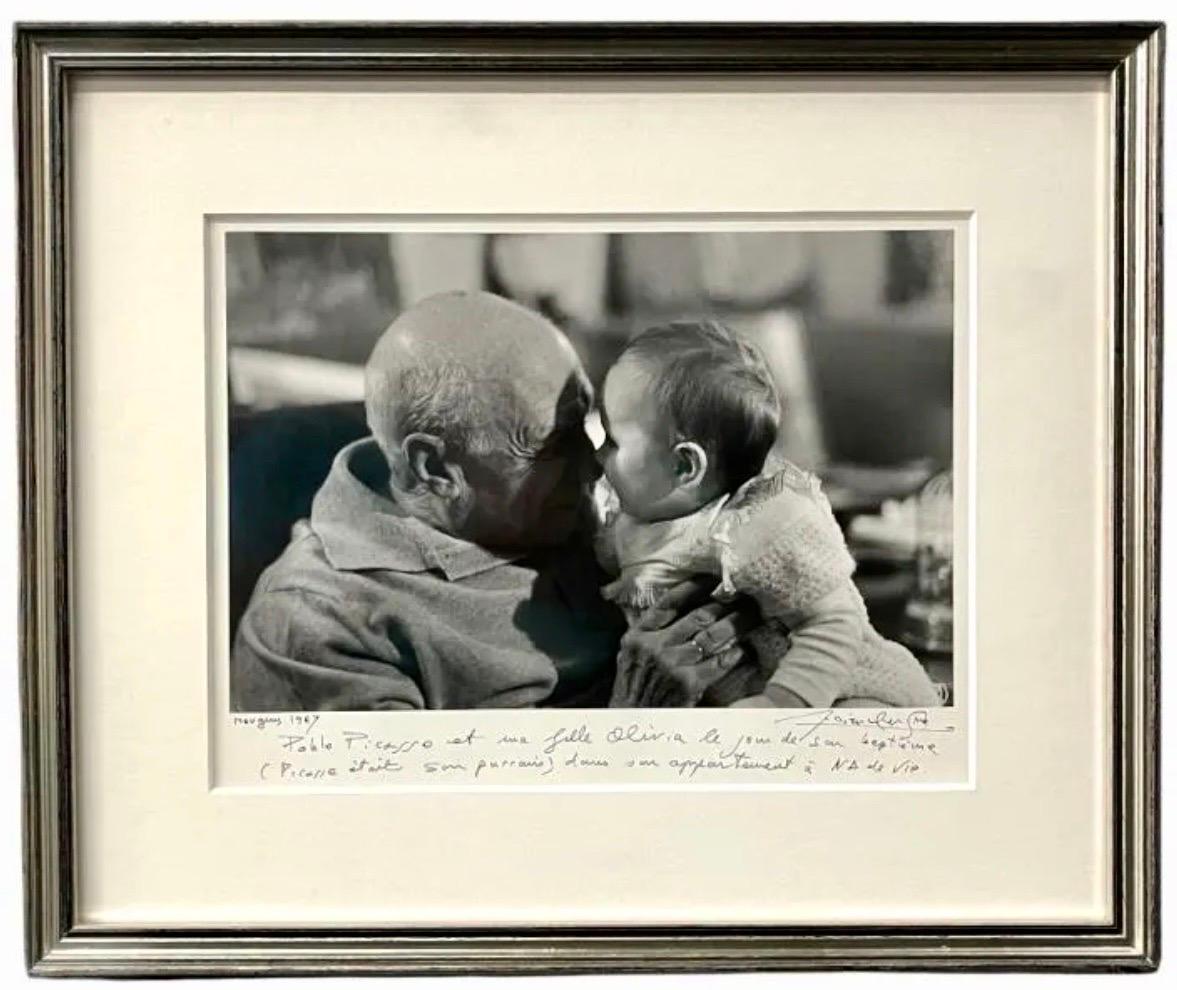
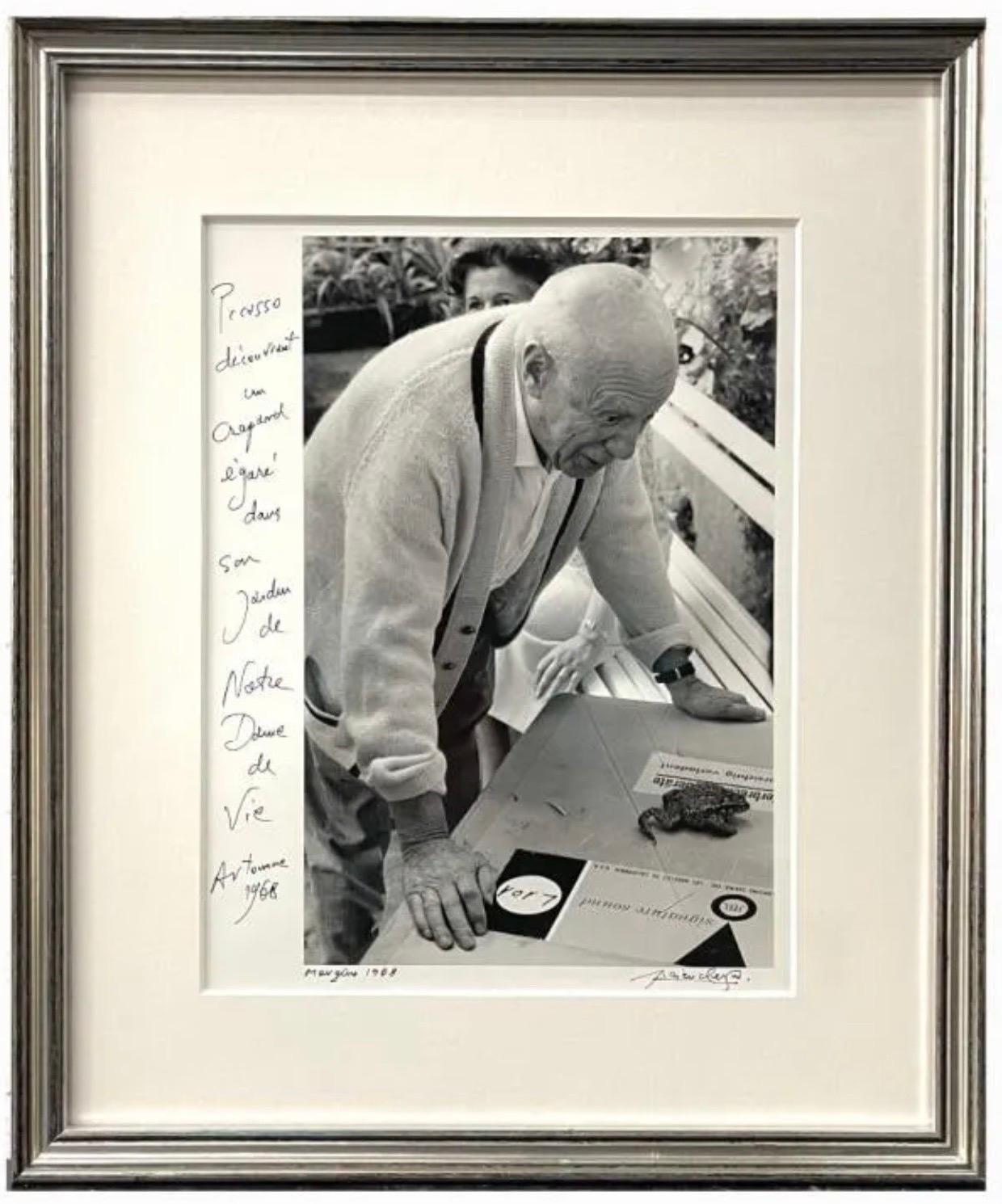
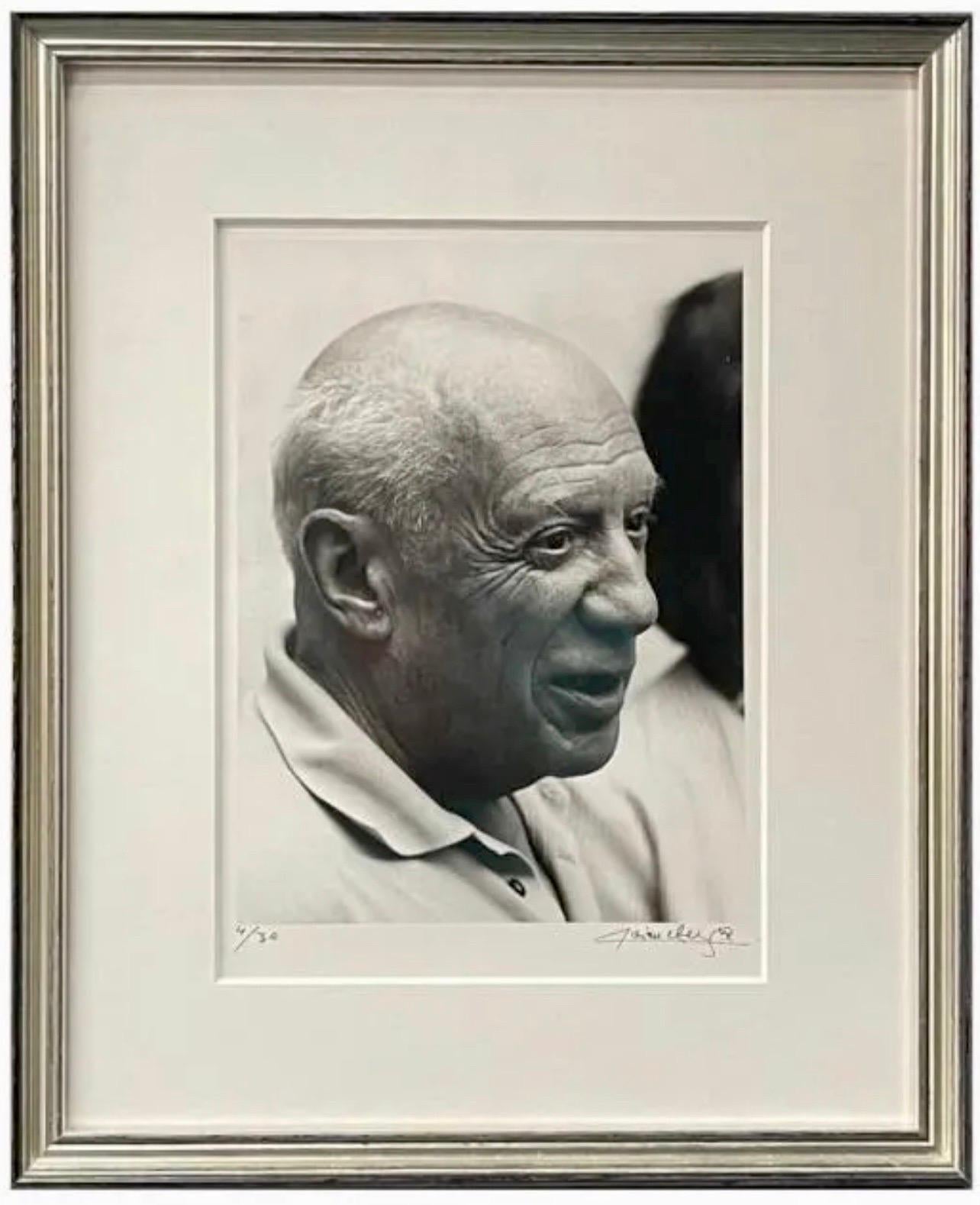
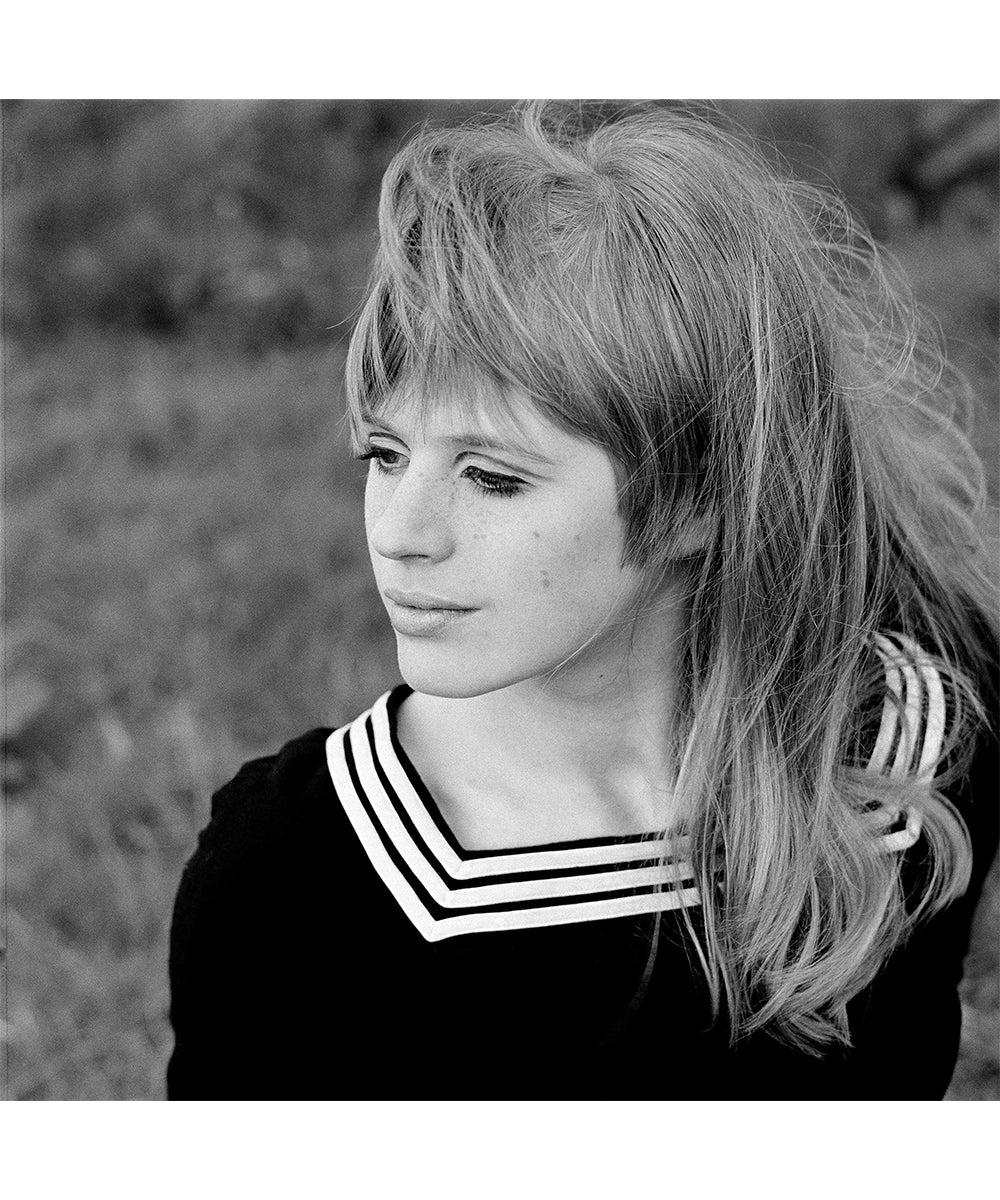
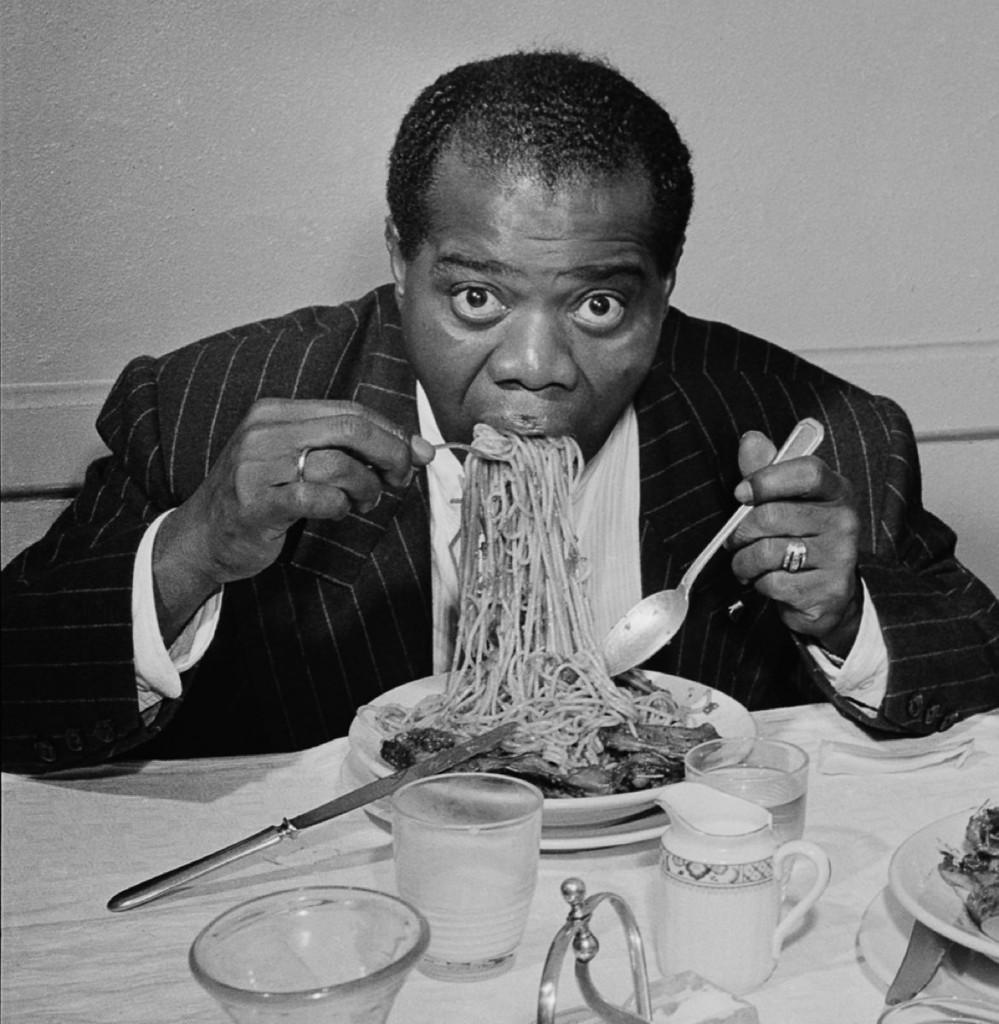
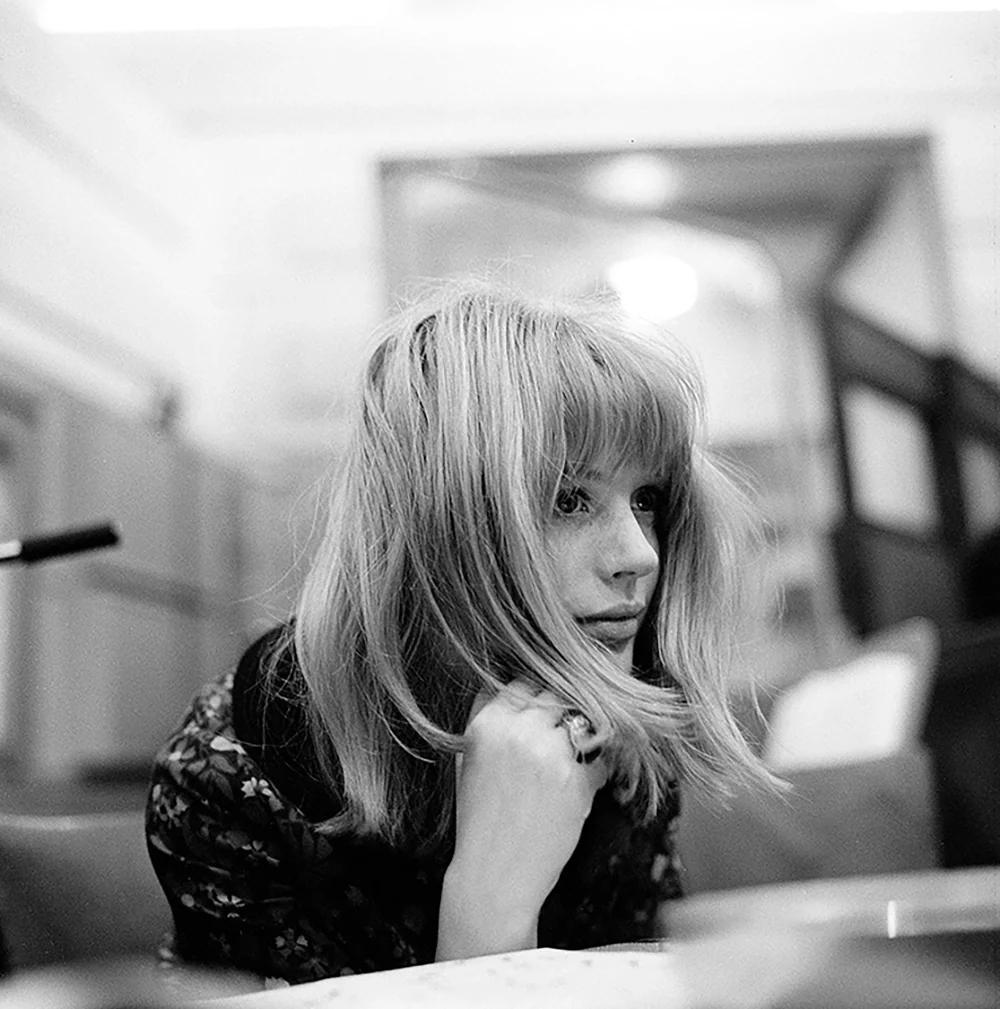
![[Chuck Howard on Boardwalk, Probably Fire Island]](https://a.1stdibscdn.com/george-platt-lynes-photography-chuck-howard-on-boardwalk-probably-fire-island-for-sale/a_3973/1627063040691/BB6571_03_master.jpg)
